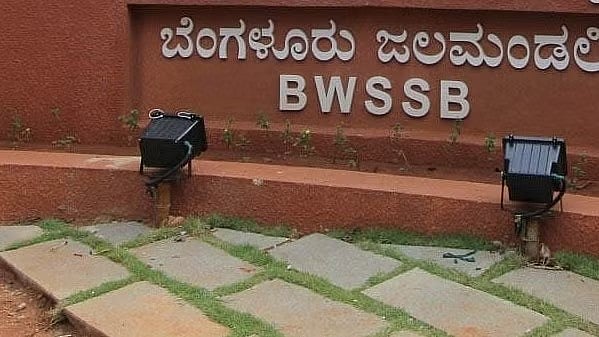
Bengaluru Water Supply and Sewerage Board (BWSSB).
Credit: Special Arrangement
Bengaluru: The Bangalore Water Supply and Sewerage Board (BWSSB) is exploring the implementation of Zero Bacteria technology, developed by scientists at the Indian Institute of Science (IISc), to enhance the quality of wastewater treated in apartment Sewage Treatment Plants (STPs), announced BWSSB Chairman Dr Ram Prasath Manohar on Tuesday.
Speaking at a workshop organized by the Indo-German Science and Technology Centre at Bharatiya Vigyan Mandir, Dr Manohar highlighted ongoing efforts to promote sustainable groundwater management in Bengaluru. To achieve this, a task force comprising IISc, the Central Groundwater Authority, and BWSSB has been established to monitor Borewells. Advanced artificial intelligence technology is being employed to prevent groundwater misuse, assess current levels, and develop strategies for efficient utilization during the summer months. Emphasizing the importance of water security, he underscored the need for innovative solutions to address future challenges.
Bengaluru’s apartments generate significant quantities of wastewater, and following the National Green Tribunal (NGT) order, most complexes have installed STPs. While treated water from these plants is commonly used for gardening, cleaning, and even resale, some developers—through CREDAI—have raised concerns regarding water quality. BWSSB is considering the adoption of IISc's Zero Bacteria technology, which produces water of superior quality compared to conventional secondary treatment. This advancement would enable broader reuse of treated water, ensuring safer applications across residential complexes.
Highlighting the city’s water challenges, Dr Manohar noted that Bengaluru faced 200 days without rainfall last year, resulting in depleting groundwater levels—a concern mirrored globally. To achieve the United Nations' Sustainable Development Goals (SDGs) on climate change, the city is committed to adopting cutting-edge practices.
He further called upon the scientific community to support solutions for both drinking water supply and wastewater treatment. Bengaluru currently generates 1,300 MLD of treated water, which must be utilized effectively. To address high water consumption by IT park air conditioning systems, BWSSB is already supplying 60 lakh liters of treated water daily.
